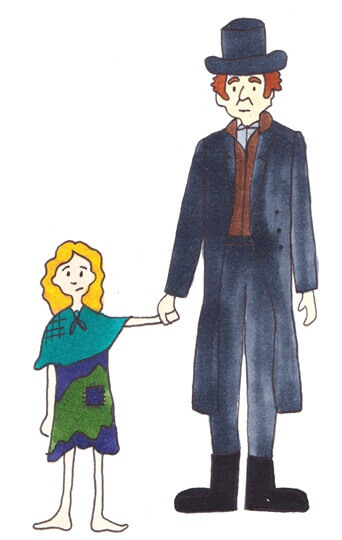Novels in Translation: Les Misérables
 Les Misérables is perhaps best known as a stage musical and a film from 2012 starring Hugh Jackman, but the moving story was originally a novel written by Victor Hugo, which at 1,900 pages in its original French is approximately four times longer than the average Harry Potter book. First published in 1862, it is considered one of the greatest novels of the 19th century, although its gargantuan length is a possible explanation for the greater popularity of the musical, which, in contrast, is under three hours.
Les Misérables is perhaps best known as a stage musical and a film from 2012 starring Hugh Jackman, but the moving story was originally a novel written by Victor Hugo, which at 1,900 pages in its original French is approximately four times longer than the average Harry Potter book. First published in 1862, it is considered one of the greatest novels of the 19th century, although its gargantuan length is a possible explanation for the greater popularity of the musical, which, in contrast, is under three hours.
The novel tells the story of Jean Valjean, beginning with his release after nineteen years in prison for stealing a loaf of bread and several escape attempts. Valjean breaks his parole, then uses money from silver stolen from a bishop to turn his life around by becoming a mayor and factory owner, inspired by the bishop’s kindness in lying to the police about the theft in order to save him. After becoming mayor, Valjean saves a woman forced into prostitution by poverty from being arrested and adopts her daughter Cosette when she dies. But his broken parole attracts incessant pursuit by police officer Javert, who was once in charge of the prison workforce Valjean was part of. This chase continues throughout the novel until Javert’s eventual suicide. To further complicate things, the action takes place against the backdrop of the French Revolution, which later becomes a focus of the plot when Valjean rescues Marius, his adopted daughter’s love interest, from dying of his wounds at the barricades, a famously dramatic scene involving Valjean carrying the unconscious body through the sewage tunnels of Paris.
Despite the thrilling details of the plot, Les Misérables is often considered a challenging or even dull read by some due to its infamous hundred-page digressions, such as Hugo’s proposal on how to improve maintenance of the Parisian sewers, the history of the convent where Valjean hides with Cosette, or his account of the Battle of Waterloo.
The length of these digressions is not surprising given that Hugo started Les Misérables with the intention of creating a controversy around the French judicial system, so a passionate social commentary seems appropriate – and he certainly had time for it, since it took him 20 years to complete the novel. But the text developed over this time to become more than a social commentary; it also evolved into a hopeful reflection on revolution and a means of applying philosophy to the degradation of France’s lower classes. So the lengthy deviations that seem irrelevant to the action could actually be seen as central to the novel’s purpose.
Knowing this doesn’t make it any easier to plough through 1,900 pages. But it does make the length worthwhile, since Hugo’s extensive explanations show his passion for revealing the context of the characters’ suffering. These characters represent, as Hugo himself said, the masses and masses of people in 19th century France who had been denied ‘work and wages, food and warmth, courage and goodwill’, who desperately needed help because ‘it is rare for those who have sunk so low not to be degraded in the process, and there comes a point, moreover, where the unfortunate and the infamous are grouped together, merged into a single fateful word’. Misérables.
The novel has been translated into 21 languages, and there are 7 different translations into English which English-speaking readers can choose from. The first, by Charles E. Wilbour, came out during Victor Hugo’s lifetime and is considered the most faithful to the original novel and its context, though a more recent translation, such as Julie Rose’s 2007 version, may be an easier read for modern audiences. So there are plenty of options to access the breathtaking plot and the illuminating, apparently unrelated digressions – as long as you have four Harry Potters’ worth of enthusiasm, go for it!














